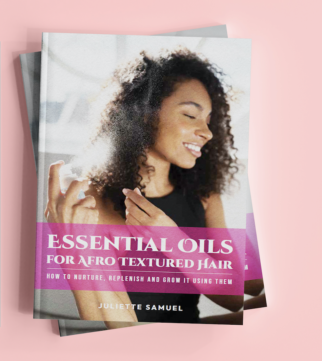It’s rather interesting to note that many people used to believe that individuals with ethnic skin were safe from hyperpigmentation. Such individuals have no idea of the real underlying causes of hyperpigmentation.
If they did, they would know that individuals with ethnic skin can get hyperpigmentation too. Here is a look at hyperpigmentation and ethnic skin, what you can do about it and how its treatment on ethnic skin varies from other skin tones.
A Closer look at Melanin in Ethnic Skin
At the bottom of your skin lie cells known as melanocytes. These cells are responsible for producing melanin, a compound that gives your skin its natural color. It’s also found in your hair and eyes. In ethnic skin, the composition of melanin in the skin is rather different.
The more melanin that is present in your skin, the darker your skin appears. In fact, this is one way to look at hyperpigmentation. For those of you with ethnic skin, the amount of melanin in your skin is much higher. However, it is almost evenly distributed throughout your skin, creating a darker complexion.
There is One Difference
Although both Caucasian and Ethnic skin can be affected by hyperpigmentation, there is one difference between them. This difference lies in the amount of melanin in the skin of ethnic individuals. It has been noted and proven that people of color have more melanin in their skin. Really?
Melanin not only gives you your skin color, it also works as a form of protection against UV light. Therefore, the more melanin you have in your skin, the more protected you are against the sun’s damaging rays. Therefore, the darker you skin, the more you can withstand sunlight before your melanocytes start to produce an excess amount of melanin.
Some Might Say There is no Difference in the Underlying Causes of Hyperpigmentation
Although it is true that individuals with ethnic skin can stay out in the sun far longer, it does not mean that you cannot be affected by hyperpigmentation. It simply means that it takes longer for the melanocytes in your skin to be affected by sunlight.
Whether it is Ethnic skin or Caucasian skin, the underlying causes of hyperpigmentation are the same. Whether by the imbalance of hormones, overexposure to the sun or the excessive use of certain skin lightening creams, there is no difference in the underlying causes of hyperpigmentation.
Although more Resistant, Ethnic Skin can be a Problem
While many individuals consider ethnic skin to be beautiful and flawless, it poses one problem. The simple fact is that in ethnic skin tones it can be difficult to detect hyperpigmentation. This is especially true for individuals with much darker skin.
Additionally, it should not be forgotten that sunlight is not the only factor that stimulates your melanocytes. Individuals with ethnic skin are still as equally at risk when it comes to other causes of hyperpigmentation; overuse of dermatological products, hormonal imbalance, etc.
There is a Difference in Treatment for Hyperpigmentation in Ethnic Skin
One aspect that many people do not seem to understand is that although the underlying cause of hyperpigmentation is the same for both Ethnic and Caucasian skin individuals, their treatment can visibly vary. From serums, to a topical cream’s active ingredient, to the duration of the treatment, individuals with ethnic skin have different outlined treatments.
For example, kojic acid may seem to be safe to use on those of you with a more fair skin complexion. However, when it comes to darker skin tones, lactic acid may prove to be a safer alternative. Treatments that make use of lactic acid are thus safer, even though they may take longer to produce results.
For individuals with ethnic skin, a simple diet and the use of special creams works wonders. The uses of various creams that have hydroquinone or even kojic acid as the active ingredient actually do more harm to the persons skin. In fact, it accelerates the process and results in rebound hyperpigmentation.
Many chemical peels work great for individuals with hyperpigmentation on their fair skin. However, some chemical peels have been shown to be ineffective for many individuals with ethnic skin. Remember, the type of chemical peel does vary and should not be used unless approved by a dermatologist or esthetician.
Although hyperpigmentation may be treated differently in ethnic skin, the underlying causes of hyperpigmentation are the same as other skin. For those with hyperpigmentation, especially those with ethnic skin, it is a good idea to visit a dermatologist and attain their expert recommendation. This will ensure more effective and efficient hyperpigmentation treatment.
Hyperpigmentation is a skin condition that affects every type of skin. Although it may not be as visible on Ethnic skin as it is on Caucasian skin, the problem is still there. In fact, late detection can make it much harder to treat hyperpigmentation. Therefore, as a person with ethnic skin, you should always be mindful of the condition of your skin.
Dedicated To Your Beauty,
Juliette Samuel
Esthetician/Author/Publisher




 Facebook
Facebook Twitter
Twitter Delicious
Delicious Digg
Digg Myspace
Myspace StumbleUpon
StumbleUpon Youtube
Youtube